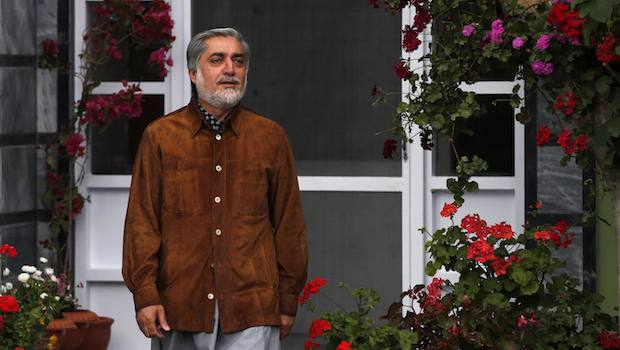Kabul—The Independent Electoral Commission of Afghanistan is set to announce the results of its recent presidential elections today, Saturday, April 26. The high turnout of Afghans to the polls in these elections surprised the world, but now three weeks have gone by without any results. As in previous elections there have been many claims of fraud—this time, they could be said to be marginal, but the accusations are still being used by the electoral commission as an excuse to conduct the vote count slowly. Here in Kabul there has been an intense political atmosphere, understandable considering this is the first time in their history Afghans have been able to hand power from one president to the next in a democratic way.
Afghan politicians and their ethnic and tribal leaders are not used to democracy or to respecting the choice of the people. After 12 years and so much change, and in the absence of US involvement, the old warlords are fighting it out as though it was their last chance at power: for them, it’s now or never. Incumbent president Hamid Karzai and his allies are looking to secure their influence before the outcome becomes clear. Meanwhile, the two leading candidates for the presidency, Abdullah Abdullah and Ashraf Ghani, are locked in tense negotiations. Still, all the attention right now is on Abdullah.
The polls clearly give Abdullah a big lead over Ghani, but the Independent Electoral Commission appears to be playing with this number due to Ghani’s prestige and his powerful Uzbek running mate, Abdul Rashid Dustam. Apparently this twist cannot be easily avoided, unless Abdullah submits to the terms and conditions imposed by powerful tribal leaders. If he doesn’t, the elections will almost certainly go into a runoff vote.
It will be difficult for hardline Pashtun leaders, some of whom have links to the Taliban, to let a liberal and former Northern Alliance member become the next president. With his strong anti-Taliban background and his history of working against Pakistan-sponsored fighters in Afghanistan, Abdullah is, perhaps, exactly the sort of president those leaders want least.
Instead, powerful ethnic leaders, as well as Karzai and his supporters, are all pushing for something like what happened in 2002, when a transitional government was formed and each political force had a seat in the government. This would be a drastic shift—and not everyone wants this—explaining the delay we are currently witnessing.
Since last week, Western ambassadors in Kabul have slowly begun expressing their fears about national divisions and possible sectarian confrontation. The administration of US President Barack Obama has not yet become involved, possibly because of the difficulties between Obama and Karzai. But it’s difficult for the United States and its allies, which have spent billions of dollars fighting terrorism and promoting democracy in Afghanistan, to see all their efforts on the brink of collapse because of Karzai’s mismanagement.
Other regional players such as Iran, which has the greatest influence in Afghanistan, have also remained silent. Abdullah is too liberal for Iran’s conservative tastes, and he has said he would sign the security agreement with the US, which Iran opposes. And so, Iran and the US have both taken a back seat in these elections, with Iran unable to find a suitable candidate to support, and the US not wanting to be involved at all.
But now, the Afghan elite are knocking at their doors, seeking their help.
Afghanistan has reached a stage where it needs a mediator to negotiate between the various factions. Iran and the US both have enormous influence in the country. They have even mediated successfully together before, at the Bonn conference in 2001: that is how this new era in Afghan history began. Whoever he is, the new president will need support from regional and international allies to help him succeed. On Saturday, we will finally know if those brokers got involved. If they didn’t, we will certainly see a runoff vote.
